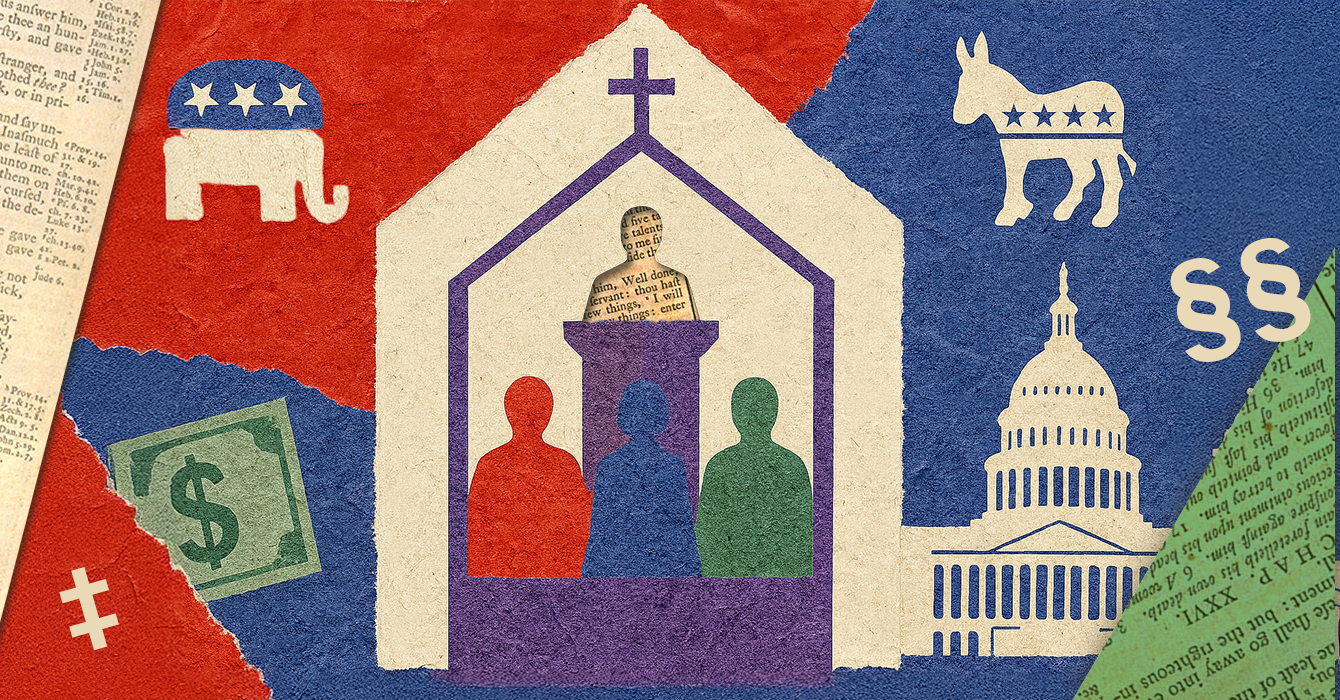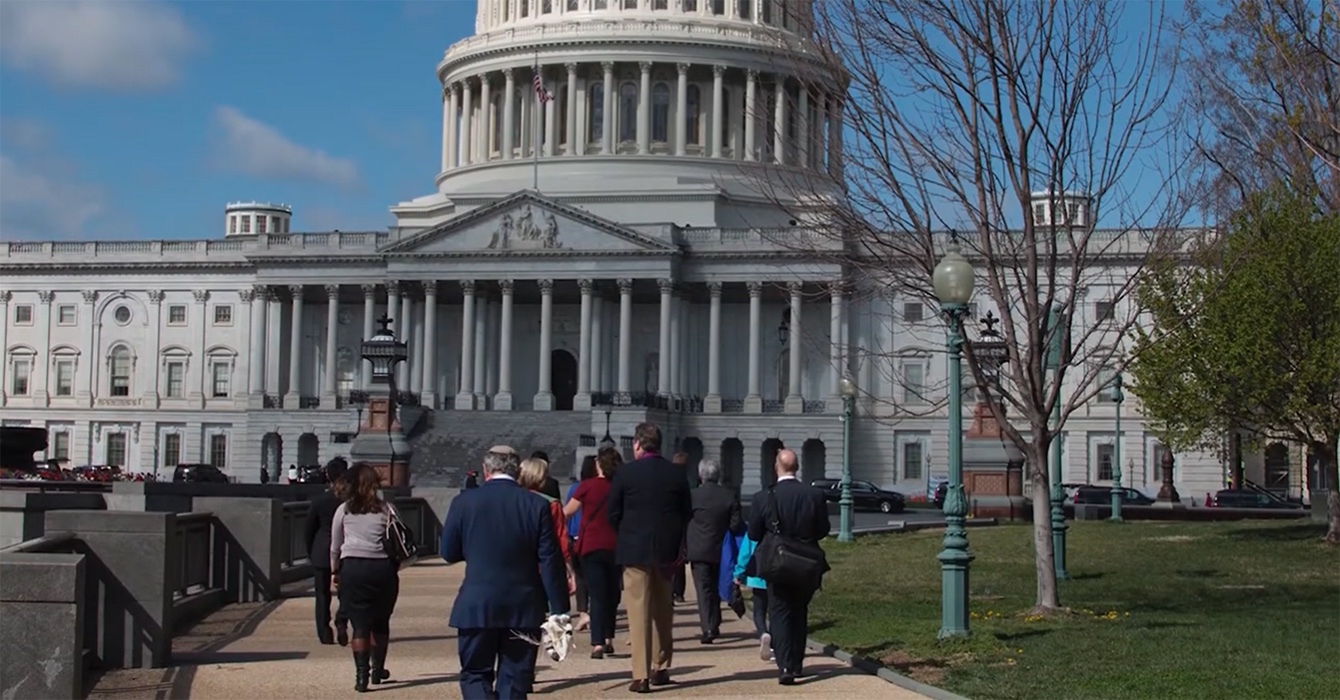The Internal Revenue Service recently proposed a new approach to rules about electioneering that could open the door for churches and other nonprofit organizations to endorse political candidates without jeopardizing their tax-exempt status. That approach marks a significant and troubling departure from long-standing interpretations of the Johnson Amendment, the 71-year-old law that keeps 501(c)(3) organizations, including houses of worship, free from partisan campaigning.
In a lawsuit challenging restrictions on churches’ partisan political speech, the IRS asserted that churches can endorse political candidates through their “customary channels of communication.” Rather than defend decades of established law that protects houses of worship from the dangers that come with political campaigns, the agency stated that such conversations should be viewed as merely a “family discussion.”
To be clear, this IRS proposal does not repeal the Johnson Amendment, but it threatens to weaken the law by allowing partisan political statements in official church communications, including sermons and newsletters. In doing so, it creates dangerous ambiguity for congregations that are trying to follow the law in good faith and threatens to transform houses of worship into venues for partisan warfare.
What is the Johnson Amendment and why is it good for religious freedom for all?
For more than seven decades, the Johnson Amendment has protected 501(c)(3) organizations, including houses of worship, from endorsing or opposing political candidates. The idea is simple: In exchange for the most favorable tax-exempt status — which includes the ability to receive tax-deductible donations — 501(c)(3) organizations stay out of partisan electioneering.
Previous attempts to weaken the Johnson Amendment have failed because they are fundamentally unnecessary, unwise and unwanted. This law protects the independence and integrity of faith communities; it ensures fairness in our political system; it allows churches to speak boldly on moral issues, serve communities across political divides and maintain public trust.
While some may interpret this IRS proposal as a win for religious freedom because it ostensibly lifts a regulation on churches, it is quite the opposite. Religious freedom in our country assumes a meaningful distinction between the institutions of government and religion, allowing our religious groups to speak boldly to power. It does not require allowing partisan campaign activity in houses of worship. In fact, religious freedom is better protected when houses of worship are free from partisan politics and the political pressure that comes with endorsing and opposing candidates.
Religious and secular nonprofit groups agree that the Johnson Amendment benefits the entire sector. That’s why BJC (Baptist Joint Committee for Religious Liberty) joined more than 1,000 other nonprofits in signing a letter opposing the new IRS proposal. If it’s approved, the groups say that “houses of worship would be subject to intense political pressure to engage in electoral politics from down ballot races and primaries to the presidency, distracting them from their missions.”
Imagine if you are part of a congregation with two different parishioners running for the same city council seat — who will the church endorse? Why would the church even get involved? Questions like these could haunt congregations and create church chaos without the protections of the Johnson Amendment.
The harms to religion can extend beyond any particular campaign. By aligning too closely with partisan agendas and creating opportunities for political donors to exploit tax-deductible donations for campaign contributions, houses of worship that choose to engage in partisan politics risk their reputations and moral authority.
Houses of worship already exercise their free speech and religious freedom daily to seek justice and serve their communities, and nothing in the Johnson Amendment prevents them from speaking out on the political issues of the day. They don’t need to make partisan endorsements to fulfill their calling or maximize their moral influence.

Guidance for churches: Move forward with issue advocacy and stay away from political endorsements
Churches have never needed to endorse candidates to impact public life and advance their mission. Some of the most powerful examples of moral leadership — including during the Civil Rights Movement and continuing today in advocacy for racial justice, immigration reform and economic justice — have come from nonpartisan faith-based coalitions.
There is plenty of room for church involvement in what is often called “issue advocacy,” which means speaking prophetically about the moral and social concerns that flow from religious conviction. Addressing systemic problems, advocating for policy solutions and calling communities to action on matters of justice and compassion are core components of the work that faith organizations do. This is fundamentally different from campaign intervention, which involves supporting or opposing specific candidates for public office.
Issue advocacy is not only allowed under the Johnson Amendment; it’s essential to faithful ministry. Houses of worship are free, as they have always been, to preach about loving your neighbor by addressing poverty, racism or care for the vulnerable. They can advocate for policies that reflect their values, organize their communities around shared moral concerns and partner with others to advance the common good.
Faithful practice over partisanship
Now more than ever, the public needs more concern and clarity to address the issues we face, not partisan noise. The proposed rule by the IRS may tempt some to think that political endorsements are acceptable or even desirable. But the best witness that churches can offer is one that transcends party lines, holds all leaders accountable and centers the gospel over partisan bickering.
Keeping a prophetic moral witness without being beholden to partisan campaign endorsements is not a limitation on religious freedom. It’s a choice to serve a higher purpose. It’s a reminder to the world that the church does not belong to Caesar.





















